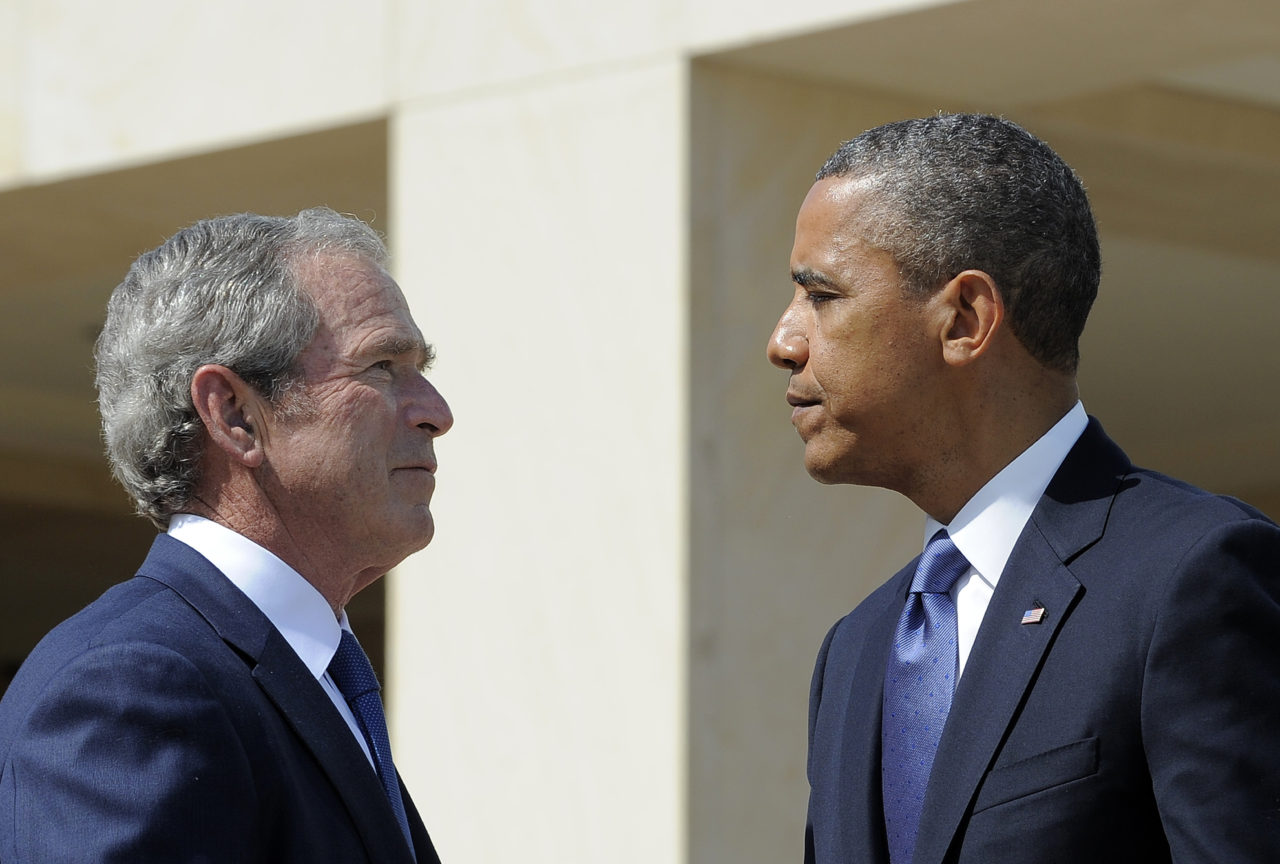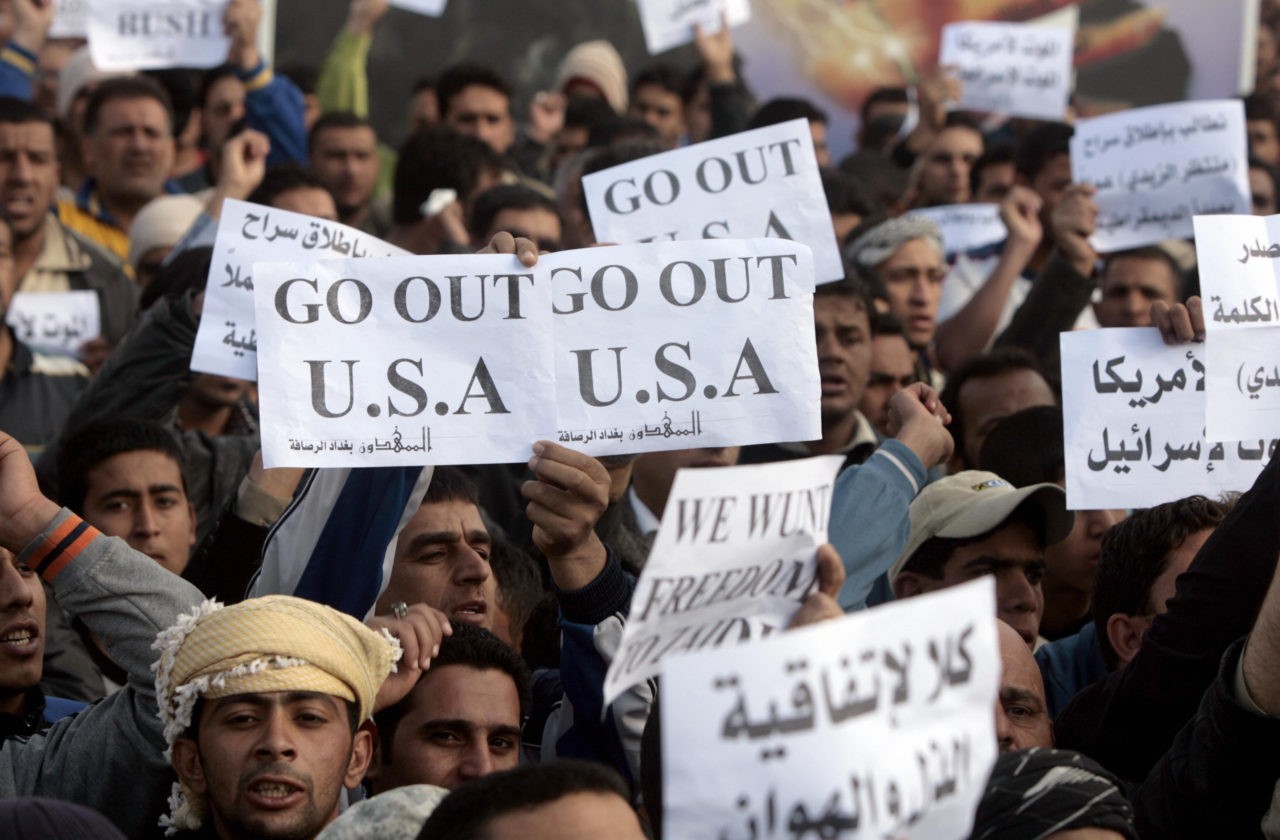It takes time to judge the full impact of an event as momentous as the Iraq War. If hindsight is 20/20, as the old saying goes, it would be foolish not to look back when 20/20 vision is finally achieved. Most effects of the Iraq War, over the long term, have proven to be disastrous.
Let’s begin by acknowledging the demise of Saddam Hussein. The world is definitely better off without him. Iraq War criticism often overlooks how bad he really was, and how much evil he was still capable of. We’ll never know what he would have done if left in power, but we know what he was trying to do when the war began, and it was awful. We know what he and his sons did throughout their reign, and it was horrifying.
Torture, murder, and ethnic cleansing are all on his resume. The attempted genocide of the Kurds seems especially relevant given current events surrounding the Kurdish independence referendum and Baghdad’s heavy-handed response. Hussein also used ecology as a weapon in a bid to wipe out the Marsh Arabs.
The Left’s mad fury at Bush during the latter half of his presidency – he was Hitler before Donald Trump was Hitler – sometimes led them to whitewash the truth of what Saddam Hussein was, and the threat he posed. The many Democrats who voted in favor of the Iraq War were well aware of that truth, no matter how loudly they would claim amnesia later after they soured on the war.
The other consequences of the Iraq War were grim:
Casualties
Of course the loss of life must be mentioned first. The U.S. Defense Department reports 4,424 total U.S. fatalities in Operation Iraqi Freedom, plus 31,954 wounded.

Air Force Major Terry Dutcher visits the grave of her son, Army Corporal Michael Avery Pursel, who died serving in Iraq in 2007 at age 19. (AP Photo/Jacquelyn Martin)
Estimating the total number of Iraqi dead is more difficult, but one peer-reviewed paper pegged the number at approximately half a million, including “indirect causes” such as failures of health and sanitation infrastructure.

Remains of U.S. servicemen in the cargo hold of a transport plane, April 28, 2005 (U.S. Dept. of Defense)
Those casualties have lasting consequences, both in the Middle East and back here at home. The Bush administration was never very good at predicting how the American people would handle so much loss of life, especially over a protracted period of time. They clearly underestimated the seismic changes in the American electorate that would result from the war.
It is the responsibility of those who would make such a momentous decision to consider all of the costs and difficulties, including the challenge of keeping the American people supportive of the effort. The Bush team seemed perpetually surprised by the political reversals at home, especially after President Bush was re-elected in 2004.
Financial Cost
The fiscal cost of the Iraq War is certainly worth mentioning as well: nearly $2 trillion, and some estimates say it will be far larger than that, once all of the interest on debts incurred is paid. As with every other government program, the costs went far beyond initial estimates.
It became harder for Republicans to campaign as the party of fiscal responsibility with a $2 trillion invoice for the Iraq War hanging over their heads. Democrats bring up the cost incessantly, and will probably do so for years to come. The outcome of the war makes it harder to deflect criticism about the cost.
The Polarization of the American Electorate
It may seem unfair to blame George W. Bush for how Democrats went off the rails in opposition to him, but that was a real consequence of the Iraq War.
Was it so difficult to predict that intense polarization would occur, if the war dragged on for years beyond that initial victory? Decades of prior history should have made that prediction easy.
Of course Bush wasn’t the original polarizing president of the modern era, not by a long shot, but the schism growing from the Iraq War was sharp and painful. Having lived through those years, and defended the Bush presidency against some of the most egregious attacks, I can say I didn’t get the sense Bush’s team truly understood how severe the political fallout was.
Christian Crisis in the Middle East
Long before anyone heard of ISIS, the great untold story of post-Saddam Iraq was the Christian exodus. A community that was once over a million strong was well on its way to being erased before the Islamic State pitched in. Once the savagery of ISIS was added to the mix, we began hearing more about how ancient Christian communities in Iraq, Syria, and other quarters of the Middle East had been wiped out forever. It’s hard to find optimism that any of these communities will return.

The burnt and destroyed interior of the St Mary al-Tahira church, November 8, 2016, in Qaraqosh, Iraq. The city was taken by ISIS in August 2014, forcing the predominantly Christian residents to flee. Their town was largely destroyed, with all of the churches burned or heavily damaged by ISIS. (Chris McGrath/Getty Images)
The Rise of ISIS
There is plenty of blame to go around for the existence of the Islamic State in its current form, but there is no denying its roots lie in the Iraq insurgency. Are there alternate histories that would have inflicted some caliphate-obsessed horror like ISIS upon the world, without the Iraq War? Histories, for example, where al-Qaeda is a stronger threat because ISIS never splintered from it, and Saddam Hussein is available to sponsor terrorism? Probably, but we must live with the history that actually unfolded.
The Rise of Obama
The 2008 election was catastrophic for conservatives and centrists. America was dragged to the Left in a huge way. Consider even the most optimistic assessments of President Trump’s tenure so far, and understand that it would be a Herculean task for him simply to restore America’s political center of gravity to where George W. Bush left it.

Presidents George W. Bush and Barack Obama (JEWEL SAMAD/Getty Images)
That’s partly due to how the Republican Party changed, during and after Bush’s term in office. Bush didn’t just drain Republican electoral strength with the Iraq War, his handling of the 2008 financial crisis, and other expenditures of political capital. He planted the seeds for Obama’s delirious deficits with his own massive deficit spending. He pushed the kind of amnesty proposals for illegal aliens that infuriates the Republican base to this day.
The political shift wasn’t just Bush’s fault. Republicans, in general, were a disaster from 2006 to 2008. Sometimes the party seemed suicidal in those days. Bush was supposed to be its leader. Preserving Republican strength was his responsibility, even if not every piece of bad news was his fault. He disappeared for long stretches of time after he was re-elected. His second term ended with a palpable sense of weariness that would have sapped the strength of a far stronger successor candidate than Senator John McCain. Much of that exhaustion came from the Iraq War, which left Bush with less influence, credibility, and time to handle other problems hounding his presidency.
His team consistently underestimated the ferocity of the Left’s attacks. Whispers of they wouldn’t do that from the White House were followed by gasps of I can’t believe they did that. Bush’s political response to events such as Hurricane Katrina was shockingly inept, and constantly betrayed an inability to understand just how many wounds he and his party were accumulating.
Destabilization of the Middle East
Iraq’s “purple fingers” led directly to the Arab Spring uprisings. In fact, analysts were predicting an “Arab Spring” of democracy would bloom as a result of Operation Iraqi Freedom long before the event actually occurred. It was the express hope of many Iraq War supporters that Iraq’s evolution into a functioning democracy would sweep away terrorism and theocracy, as people across the Middle East hungered for a taste of what America brought to Iraq.
It wasn’t a bad theory, but as we now know, that isn’t what happened – and it’s the fault of Bush administration planners for not understanding the dominos they tipped over. The Obama administration got it wrong too, but Bush’s errors came first.
When the Arab Spring finally arrived, unsavory but stable regimes were knocked over and replaced with Islamist nightmares. Grim horrors were unleashed, instead of glorious evolutions to sustainable democracy. Iraq itself became a cesspool of corruption and sectarian strife that paved the way for ISIS to roll across the border, ultimately requiring American forces to return.

Thousands of protesters packed Cairo’s Tahrir Square, with Islamist groups dominating the protest, during Egypt’s Arab Spring. (KHALED DESOUKI/AFP/Getty Images)
Democracy was fetishized too much in Bush policy, without adequate consideration for the possibility that some populations would promptly vote themselves into a new sort of tyranny once the old tyrants were swept away. This continued through the Obama years, as Islamists like the Muslim Brotherhood gave far more thought to how the vote in places like Egypt would actually turn out than starry-eyed American policymakers. In a similar vein, democracy in Gaza gave us Hamas in 2006. Hamas just refused to disarm,
In a similar vein, democracy in Gaza gave us Hamas in 2006. Hamas just refused to disarm, sever its ties with Iran, or give up on its quest to wipe out Israel. As America’s founders well understood, representative government requires certain civilized conditions to sustain itself. Ballots do not conjure those conditions out of thin air.
Politically Correct Blindness
One reason Bush’s team was so unable to comprehend the forces it unleashed was the stultifying politically correct blindness that begin with Bush’s “Islam is a religion of peace hijacked by a tiny minority of extremists” canard.
It simply wasn’t possible for our government’s officials to speak frankly about how Middle Eastern societies were missing the vital elements that would allow true democracy to take root. The belief flowing from the Bush administration through its successor was that democracy was a magic elixir that would bring all the other facets of enlightenment with it, from clean government to religious tolerance. No one in either the Bush or Obama administrations could look clearly at a place like Egypt or Libya and predict who would win when “democracy” arrived.
The Bush administration institutionalized the blindness that gave us some of President Obama’s most absurd evasions, which President Trump ran so hard against. Our system’s comprehensive inability to see the red flags fluttering around Fort Hood jihadi Nidal Hasan began in the Bush years.
The Western world will be struggling with its perceptions of Islam for a long time to come. Clarity in the early days of the so-called “War on Terror” (itself a murky phrase) would have been helpful. The notion that one cannot look honestly at Islam without engaging in bigotry or “Islamophobia” is a pathology that comes to us from the Bush era, and that early decision to absurdly minimize the influence of extremists.
The Migrant Crisis
If nation-building proved to be an act of hubris, so too was the belief that Middle Eastern pathologies could be bottled up inside battle-torn countries. The Syrian civil war is among the worst consequences of the Arab Spring. Its attendant migrant crisis is currently destabilizing Europe. The Libyan civil war, also still in progress, was another.
Both of those conflicts began with Arab Spring demonstrations, and the Arab Spring flowed from the Iraq War. The leadership of both Syria and Libya was eminently worthy of protest, but the disastrous manner in which both uprisings unfolded has been a humanitarian disaster, and a terrible burden for the entire world.

Thousands of migrants marched across the border between Croatia into Slovenia in October 2015, as authorities attempted to cope with Europe’s largest migration crisis since World War II. (Jeff J Mitchell/Getty Images)
Was the outcome of the Iraq War worth all of the above – for the Western world, for America, for Republicans? As noted at the outset, a comprehensive answer to that question would require perfect knowledge of the unknowable: what would have happened if Iraq was not invaded. As time goes by, it becomes harder to convince people that staggering costs were justified to avoid a hypothetical future that did not come to pass.

U.S. soldiers patrol in the Diyala province, northeast of Baghdad, on March 19, 2008 (DAVID FURST/AFP/Getty Images)

Iraqis protest President George W. Bush’s surprise farewell visit to Iraq in December 2008. (AHMAD AL-RUBAYE/AFP/Getty Images)
It’s interesting that even stalwart Bush defenders rarely make the case that Iraq was a good deal. One recent example was when Jeb Bush defended his brother during the 2016 Republican primary. Jeb said “there’s one thing I know for sure – he kept us safe” and praised his brother for sending “a clear signal that the United States would be strong, and fight Islamic terrorism” from the rubble of the World Trade Center. Praiseworthy as that might have been – and I would add my praise without reservation – it has nothing to do with the Iraq war.
Other Bush defenders rail against the unfairness of claiming George W. Bush “lied” America into the war. Again, that debate has little bearing on what happened. Even the question of whether invading Iraq was wise or justified is distinct from examining how the war was conducted, how well its effects were predicted, and whether the costs justify the benefits. Conservatism is the ideology that says all benefits must be measured against their costs.
The man whose presidency came to be defined by the Iraq war – an event that reshaped both the Middle East and America’s political landscape – is accountable for his estimate of the costs before launching the invasion, and all that could have been done to minimize them afterward.

COMMENTS
Please let us know if you're having issues with commenting.